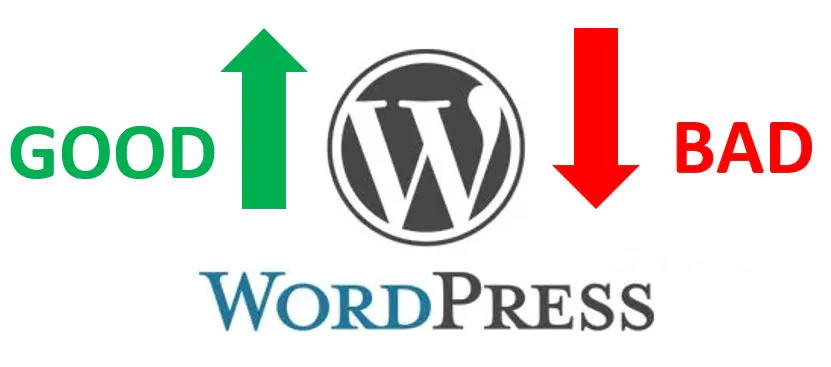Pros and Cons of Using WordPress
WordPress is one of the most popular content management systems (CMS) in the world. It powers over 40% of all websites on the internet, and its popularity continues to grow. However, like any tool, WordPress has its pros and cons. In this article, we’ll take a closer look at the advantages and disadvantages of using WordPress.

Pros of Using WordPress
1. Ease of Use
WordPress is easy to use and comes with an intuitive interface that allows even beginners to create a website with ease. The platform offers a wide range of themes and plugins, which makes customization a breeze.
2. Flexibility and Customizability
WordPress is a flexible platform that can be used to create any type of website, from a blog to an e-commerce store. With thousands of themes and plugins available, you can customize your website to fit your specific needs.
3. SEO-Friendly
WordPress is optimized for search engines right out of the box. Its clean code and structure, along with plugins like Yoast SEO, make it easy for search engines to crawl and index your website.
4. Large Community and Support
WordPress has a large community of developers, designers, and users who are always willing to help. There are also plenty of resources available online, including forums, tutorials, and documentation.
5. Cost-Effective
WordPress is a cost-effective solution for creating a website. The platform itself is free, and there are plenty of free and affordable themes and plugins available.
Introduction to WordPress
Understanding WordPress Versions and Updates
Cons of Using WordPress
1. Security Vulnerabilities
WordPress is a popular target for hackers and is often targeted by malicious attacks. While there are plenty of security plugins and measures available, keeping your website secure can be a challenge.
2. Website Speed
WordPress websites can be slow if not optimized properly. This can lead to a poor user experience and hurt your search engine rankings.
3. Updates and Compatibility
WordPress updates are frequent, and sometimes plugins and themes may not be compatible with the latest version. This can lead to conflicts and even website downtime.
4. Learning Curve
While WordPress is easy to use, it does have a bit of a learning curve, especially if you want to customize your website. Learning how to use plugins, themes, and custom code can take time.
5. Maintenance
WordPress requires regular maintenance, including updates, backups, and security checks. This can be time-consuming and may require technical expertise.
Visit : https://wordpress.com
Summary
Pros and Cons of Using WordPress: WordPress is a powerful and flexible platform that can be used to create a wide range of websites.
Pros and Cons of Using WordPress While it has its advantages, such as ease of use, customizability, and SEO-friendliness, it also has its drawbacks, including security vulnerabilities, website speed, updates and compatibility, learning curve, and maintenance requirements. It’s important to weigh the pros and cons before deciding if WordPress is the right choice for your website.